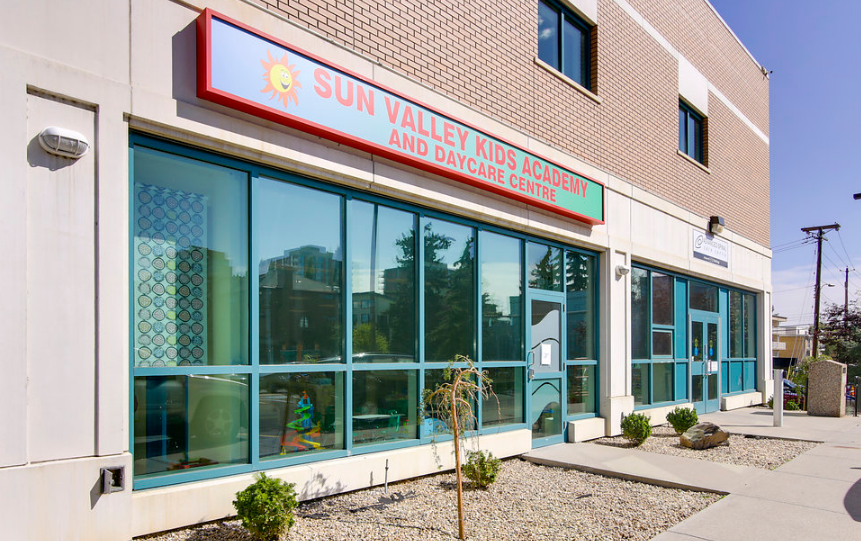‘Pie in the sky ideological schemes’: Premier rebuffs push for renewable transition
Posted Apr 24, 2020 5:50 pm.
Last Updated Apr 27, 2020 12:17 pm.
EDMONTON (660 NEWS) — Oil prices are at a low never seen before in Alberta or around the world, due to the COVID-19 pandemic.
This is putting a serious strain on the local and provincial economy, and the future of the oil and gas industry is cloudier than ever.
In the most recent provincial budget, the United Conservative Party projected oil prices to hover close to $60 a barrel if all went well, but the pandemic has created an unprecedented situation by sending them plummeting to near-zero levels.
During a press conference about investments being made to boost wellsite reclamation and cleanup on Friday, in the hopes it will help stimulate the sector and create jobs, Premier Jason Kenney was asked if he is considering a swifter transition to renewable energy.
In addition, he was asked if there has been any discussions with American politicians about a Green New Deal which would see vast investment in the renewable sector.
https://twitter.com/Tommy_Slick/status/1253745803945893889
The question drew a sharp rebuke.
“When you talk about the Green New Deal, listen, our focus is on getting people back to work in Alberta. Not pie-in-the-sky ideological schemes. We are actually not trying to amplify, but fight back against the political agenda of the green left that has been trying to landlock Alberta energy,” Kenney said.
As part of the announcement, Kenney said former Edmonton-area MP James Rajotte has been appointed as Alberta’s representative in Washington DC and will be mainly tasked with engaging American lawmakers with a focus on Alberta’s energy sector and a North American energy strategy.
Kenney made it clear there won’t be engagement with representatives such as New York’s Alexandria Ocasio-Cortez or former Democratic presidential candidate Senator Bernie Sanders who have been strongly advocating for the Green New Deal.
“That kind of question, in the middle of an economic crisis — from a Calgary-based media outlet — frankly throws me for a loop. Sounds like you’re reporting for The Tyee or something.”
Here's the question and response with Premier Kenney regarding a transition to renewables and if Alberta was talking to anyone pushing the Green New Deal. #yeg #yyc #ableg pic.twitter.com/jKdnzP7TCq
— Courtney Theriault (@cspotweet) April 24, 2020
Kenney added that demand for oil will increase, and he will make sure the oil comes from Canadian sources — particularly Alberta.
“In that world, twenty years from now, when the world needs that energy we want to make sure that it’s coming from a stable, environmentally responsible, market-based democracy with the world’s highest human rights, labour and environmental standards,” said Kenney.
“We’re not going to work with the small minority in Congress that wants to pursue the ideological fantasy of shutting down the modern industrial economy.”
The Premier said they are promoting the Technology, Innovation and Emissions Reduction (TIER) plan, that looks to incentivize more energy-efficient energy production, but is not as drastic as other moves such as those put in place by the former NDP government.
NDP MLA Irfan Sabir said the announcement on wellsite rehabilitation is a good first step on helping the oil industry while also addressing some environmental concerns about orphan wells, but some new strategies are needed in response to the record-low oil prices.
“Diversification is the way to go, it is an opportunity, it is something that we need to be focused on. When we were in government, we helped the oil and gas industry,” he said.
“At the same time, we invested in petrochemical diversification, we invested in energy transition towards more renewable energy.”
Experts believe this is the time for a more aggressive approach, however, and there is evidence from around the world that a transition away form fossil fuels is not a wasted investment.
“It would just be a terrible missed opportunity for us to ignore this pathway of development,” said Dr. Mishka Lysack, a professor at the University of Calgary specializing in climate change and sustainable development.
“The viability is quite great,” he added, “Alberta has some of the best renewable energy resources in Canada.”
Wind and solar present attractive opportunities in particular, not to mention other emerging technologies, and there are examples around the world such as Germany and the United Kingdom.
“Since 1990, (the UK’s) GDP has risen by about 44 per cent. So they’ve had really significant economic growth. In Canada, in the same time period, our economic growth has gone down by 37 per cent,” he said.
The UK has hit ambitious climate targets between 1990 and 2015, reducing carbon emissions by 300 megatonnes, while Canada’s emissions are going up and it is doubtful we will reach targets set internally or by the United Nations.
“It will lead to very sustainable, long-term and much more dynamic economic growth than continuing to invest where we are now.”
Dr. Lysack added that money is flowing into the renewable sector, and there is a big potential for Canada to become a leader in innovation and exporting knowledge or technology around the world to speed up transitions elsewhere.
Premier Kenney said his focus remains on jobs, but Dr. Lysack countered with the notion that many more jobs are available in the burgeoning renewable sector.
Citing research from the United States, renewable energy sources can create more jobs relative to investment. But since wind and solar cannot operate independently at this stage, there are more jobs in linking it to a grid, and then there will be jobs relating to transportation and retrofitting infrastructure.
Finally, when renewables are combined with the existing traditional energy sources and the wider needs of connecting the sources to the community, there are significant gains in jobs.
“When you start linking them together, as a sort of overall strategy in terms of addressing climate change but also addressing economic development that is sustainable, then its potential really escalates quite significantly,” added Dr. Lysack.
He said the pandemic and downturn in the economy strengthens the case and it can also make waves in addressing public health concerns relating to pollution.
Local activists are concerned about the reluctance to make a switch and what it means for the future of the province.
“If the Alberta government is going to dig into more $100 barrel of oil rhetoric, we’re definitely going to see more austerity, we’re going to see cuts to our public services, we’re going to see cuts all across the board that are going to hurt working people,” said Stephen Buhler with Climate Justice Edmonton.
“There’s no shortage of jobs as we transfer into renewable energy.”
Buhler said he is concerned for his own future and ability to retire at a reasonable age if there isn’t a swifter change, and the green infrastructure will be a boon for the province.
Dr. Lysack agreed that it could reduce the uncertainty that is rising in Alberta.
“We need to start to transition to an alternative that can provide a more stable economic future, that can certainly creates jobs, that also has less pollution,” he said.
“I don’t think Albertans want to miss this opportunity.”










